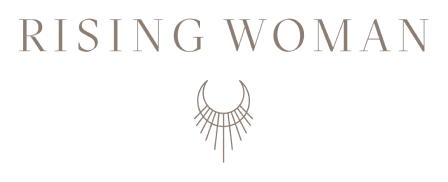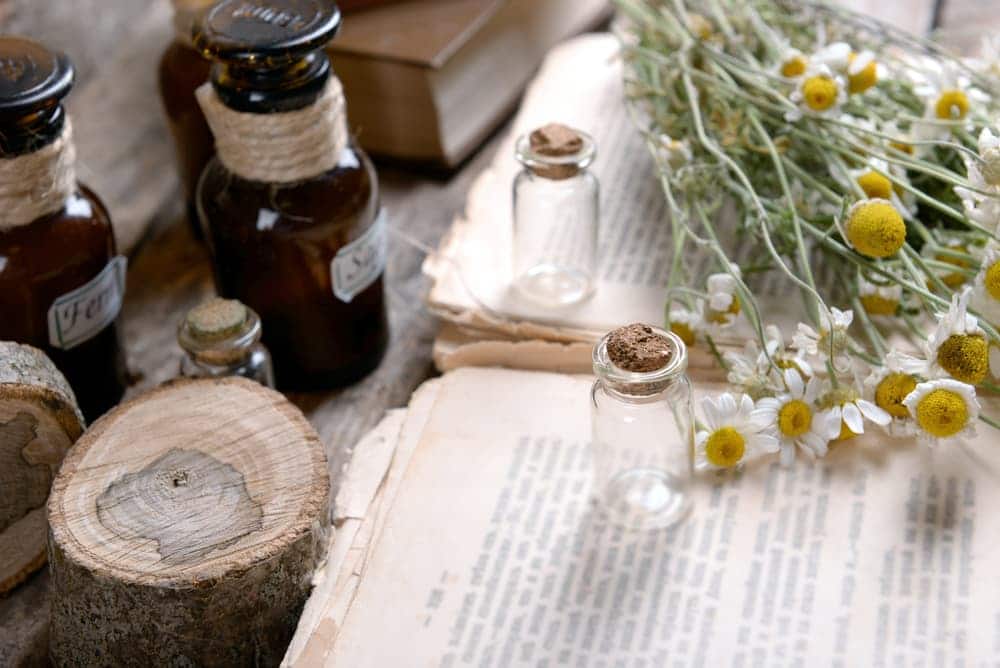I’ve experienced low hormone levels (progesterone, estrogen etc.) for many years. From intense PMS that caused negative thoughts and dramatic fatigue, to breakouts and painful menstrual cramps, I’ve sort of had a taste of it all. To say hormones make or break us is an understatement. As a woman, I’ve come to learn that nourishing my hormones is the most important aspect of self-care I can take on.
Honestly, I used to believe that hormones were such a complicated subject there was simply no point in trying to take on my own healing. All I knew was that they were a very complex matter. But I read this book called Balance Your Hormones, Balance Your Life by Dr. Claudia Welch and she broke the endocrine system down on such a basic level, that once I finished reading that book I confidently understood how the hormonal system worked, and felt excited even to embark on my own healing journey.
1. Vitamin C
Dr. Sara Gottfried, author of The Hormone Cure, stresses the use of Vitamin C for the most common hormonal imbalances. In the documentary “The Gerson Miracle”, the use of Vitamin C for the treatment of depression is reviewed and praised.
Vitamin C is known for boosting the immune system, but it’s also a mood booster and a key player in healthy hormone production. If you have adrenal fatigue or other hormonal imbalances that cause fatigue and anxiety, taking Vitamin C can help you with your mood. I also take it right after I do a heavy workout to curb any anxiety response that I may experience.
If you have low progesterone, consider Vitamin C IV therapy with your Naturopath, or supplement with Vitamin C. Onnit labs Vitamin C with Lysine is a quality choice for capsule form, or Health Force Nutritionals Acerola Cherry Powder.
2. Glutathione
It’s one of (if not the most) important antioxidants, responsible for every cellular process in the human body. Glutathione supports your detox pathways, protecting you from inflammation and toxins. Without it, your body won’t be able to detox as effectively and your immune system becomes weakened.
The challenge with most Glutathione supplements on the market is that they cannot be properly absorbed, so are often rendered useless once they reach the gut. If you can get IV Glutathione with a Naturopath, that’s a great option. Another option is to take Upgraded Glutathione Force, it’s 8X stronger than traditional glutathione supplements and it’s pharmaceutical grade.
3. Licorice
This plant is an adrenal fatigue powerhouse, prescribed by most Naturopaths or Herbalists when addressing adrenal fatigue, low cortisol and other hormonal imbalances. Licorice mimics cortisol, almost like how estrogenic plants like lavender can mimic estrogen. If you’re experiencing adrenal fatigue, the smartest way to supplement is by getting Pharmaceutical grade, lab-tested herbs from your Naturopathic Doctor. Not everyone will benefit from this plant and it’s wise to start slow with it. Sometimes it can cause loose bowels, and it’s pretty powerful so you shouldn’t be taking it for an extended period of time.
4. Milk Thistle
Liver detoxification is at the top of the list when it comes to hormonal balance. Just one of the many roles of your liver is to remove excess hormones from your system. If your liver is overloaded or congested, dealing with other toxins from food, water and environment, this function may slow down and you can wind up with hormonal problems like excess estrogen.
You can get Milk Thistle on it’s own at an herbal dispensary like HarmonicArts.ca. You’ll find Milk thistle in almost every liver detox formula, in capsule, tincture and whole herb form. You can actually grind up milk thistle seed and sprinkle it on your morning chia porridge or blend it into a smoothie if you like! Health Force Nutritionals also carries a line of amazing herbal formulas. I try to take liver cleansing herbs on a regular basis because I have sensitive skin that as I have gotten older, has become prone to acne. I notice a difference in my skin and energy levels when I am taking care of my liver.
5. Borage Oil
Known for it’s abundant concentration of GLA gamma linolenic acid, this plant is a gift to those suffering from adrenal fatigue and hormonal imbalance. Borage oil helps stimulate the adrenals to function properly, and it’s also used by women who have hormonal acne and other skin problems as well as infertility.
Some Naturopaths will recommend 3,000 milligrams per day, or that you use fish oil or another omega 3 supplement for the first half of your cycle, and borage oil for the last half of your cycle. A lot of practitioners or herbalists recommend Primrose oil because of its GLA content, but Borage Oil actually has the highest GLA content of all plants.
6. Magnesium
One of the most common mineral deficiencies is magnesium. It’s responsible for more than 300 bodily processes, so it stands to reason that if you’re low on magnesium, this can have a cascading effect on your hormonal health. Magnesium helps regulate cholesterol, and while you may be used to hearing the bad things about cholesterol, it’s actually required for your body to produce the hormones you need. For optimal absorption, magnesium is best taken at night, or you can soak in a magnesium bath or use a magnesium spray as well.
7. B Vitamins
Restlessness, nervousness, anxiety and insomnia can all be signs that you need more B Vitamins. Taking B Vitamins can also help to restore balance to cortisol production and boost your mood. You can find a quality B complex supplement at your health food store, or you can talk to your naturopath about the Myers Cocktail IV treatment which consists of magnesium, calcium, B12, B6, B3, B complex and Vitamin C.
The Myers cocktail can help with migraines, fatigue, PMS, Fibromyalgia and Depression. IV therapy can be expensive, at anywhere from $45-$120 per treatment, so don’t stress, if it’s not in your budget. Supplementation is a great place to start. My naturopath also pointed out to me recently that the IV cocktails are all water soluble, so we pee them out pretty quick. It’s probably a better long term strategy to rebuild slowly through food, herbs and lifestyle tweaks.
8. Ashwagandha
If you experience depression or uncontrollable mood swings and PMS, it can feel like you’re completely out of control. I used to have terrible mood swings before my cycle would start, which would include negative thoughts and depression I couldn’t control no matter what I tried. It was like being on a roller coaster and having a sudden drop, right around day 17 of my cycle. Sure enough, when I had my hormones tested, we saw a huge dip on day 17 that was causing the mood swings, sadness and fatigue. After 4-6 months of taking Ashwagandha tincture 3X daily religiously upon the recommendation of my dear friend Angela Willard of HarmonicArts.ca, my symptoms were completely gone. Ashwagandha has positive effects on the nervous system and reduces stress.
9. Chasteberry
Also knowns as Vitex, chasteberry can help regulate your menstrual cycle by balancing estrogen and progesterone. While it’s not fully classified (yet) as an adaptogenic herb, some herbalists agree that Chasteberry will work with your hormonal system to bring balance based on your unique situation, essentially clearing a path for balance to occur naturally versus forcing specific levels to rise or fall. When you use an adaptogenic herb, you don’t have to worry about getting the wrong results, because it works with you where you’re at, sees what needs to be done, and gets to work. Like most herbs, you may need to give it up to 6 months before you feel the changes, be patient.
10. St. John’s Wort
This plant has antidepressant qualities and can offer pain relief as well. You can find St. Johns Wort in loose leaf tea form, or take it as a capsule or tincture (an extraction, usually in alcohol.) St. Johns Wort can help relieve hot flashes, hormonally related depression and improve libido. Dr. Sara Gottfried in her book The Hormone Cure warns not to take more than 300mg of St. John’s Wort per day, and to be very careful if you’re on other anti-depressants.
11. Black Cohosh
This is an herb commonly used for menopause, black cohosh is quite powerful and has traditionally been used to relieve hot flashes, night sweats and other unpleasant symptoms of low estrogen. Additionally, it was used to bring on menstruation and help relieve menstrual pain. I’ve experienced relief using black cohosh in tincture form, but because it’s so strong I don’t use it on a regular basis.
Be Mindful with Your Regimen
Using herbs if you’re on anti-depressants, birth control or other medications can be dangerous. Just like you cannot combine all types of synthetic pharmaceuticals, some herbs cannot be combined with synthetic pills or other herbs. Be smart about how you use herbs to heal yourself, and check in with your Naturopath, Herbalist or Physician before you start a new regimen. Find a doctor who’s open to working with you to incorporate natural medicine into your protocol. Integrative doctors are medical doctors who also practice natural medicine, so you can search for one of those in your area online.
All of the supplements and herbs listed here are beneficial to some, not all. You may not find relief in the first herb you try, so be patient and don’t be afraid to ask for support. You’re on the right path by exploring options already, but it can take time before you are back in balance. In the mean time, start designing your lifestyle protocol as well.
Quality is Essential, Don’t Cheap Out
When it comes to supplements and herbs, you’ll also want to spend the money to make sure you’re getting high quality. If you plan to just look for the cheapest option, it’s not worth it and can be detrimental to your health. You want supplements that are high quality, safely manufactured and that do not contain a lot of unnecessary fillers or colorings. Herbs should be organic, ethically harvested and tested for their potency. Naturopathic doctors can usually prescribe herbs to you that have been tested in a lab for potency, which can be more costly but worth it in the end. Thorne Research has some very high quality supplements, and I love HarmonicArts.ca for their herbal tinctures.


